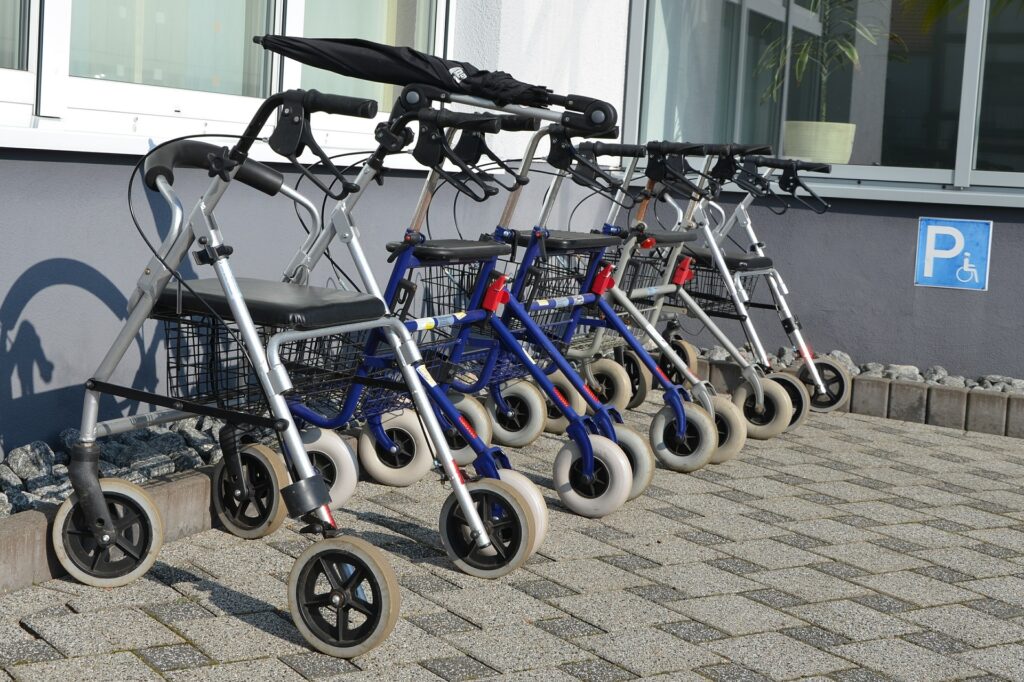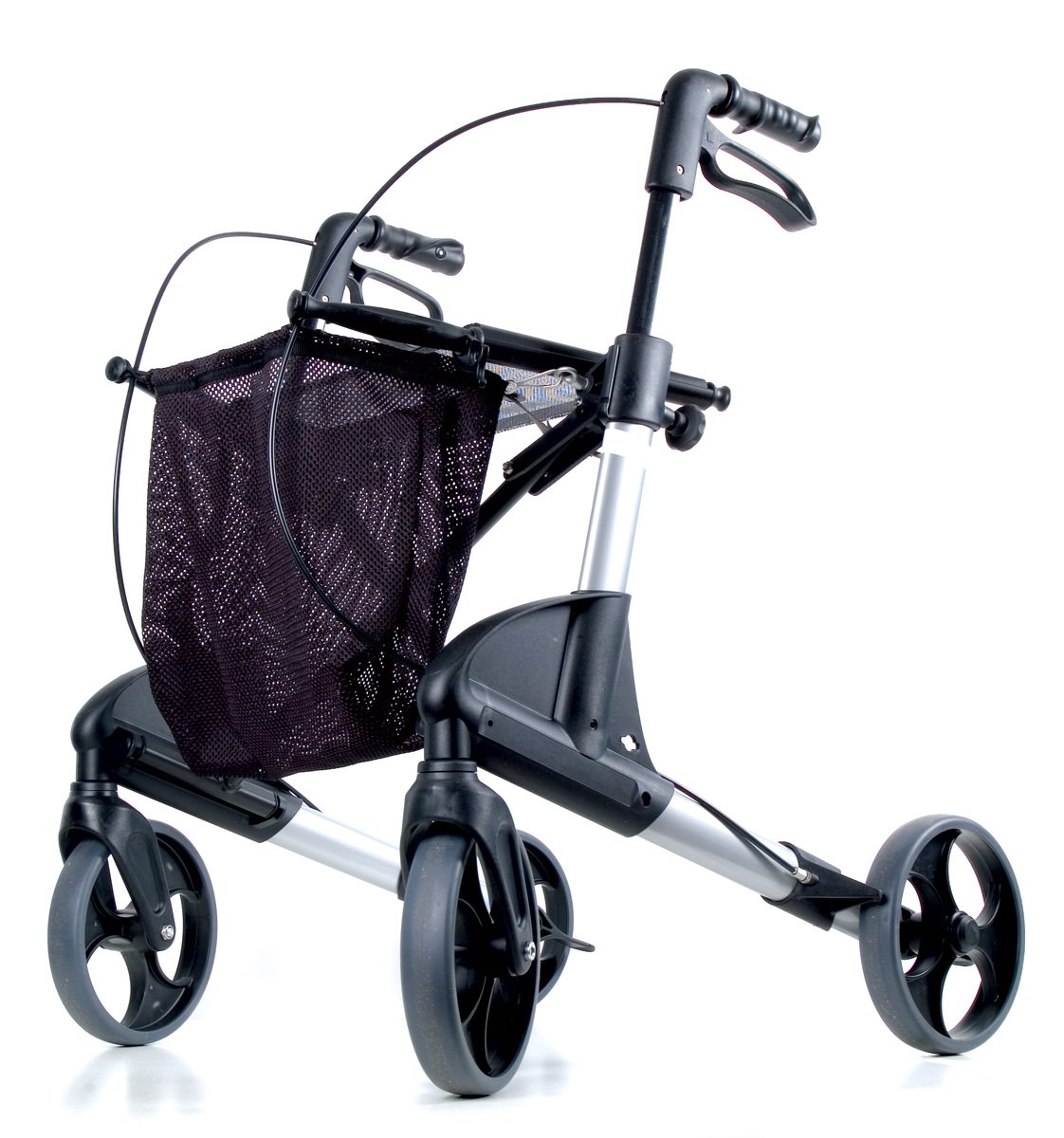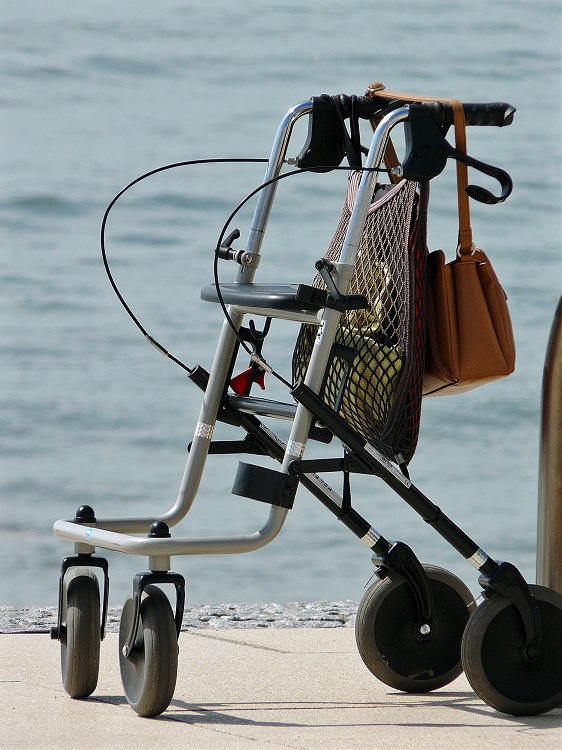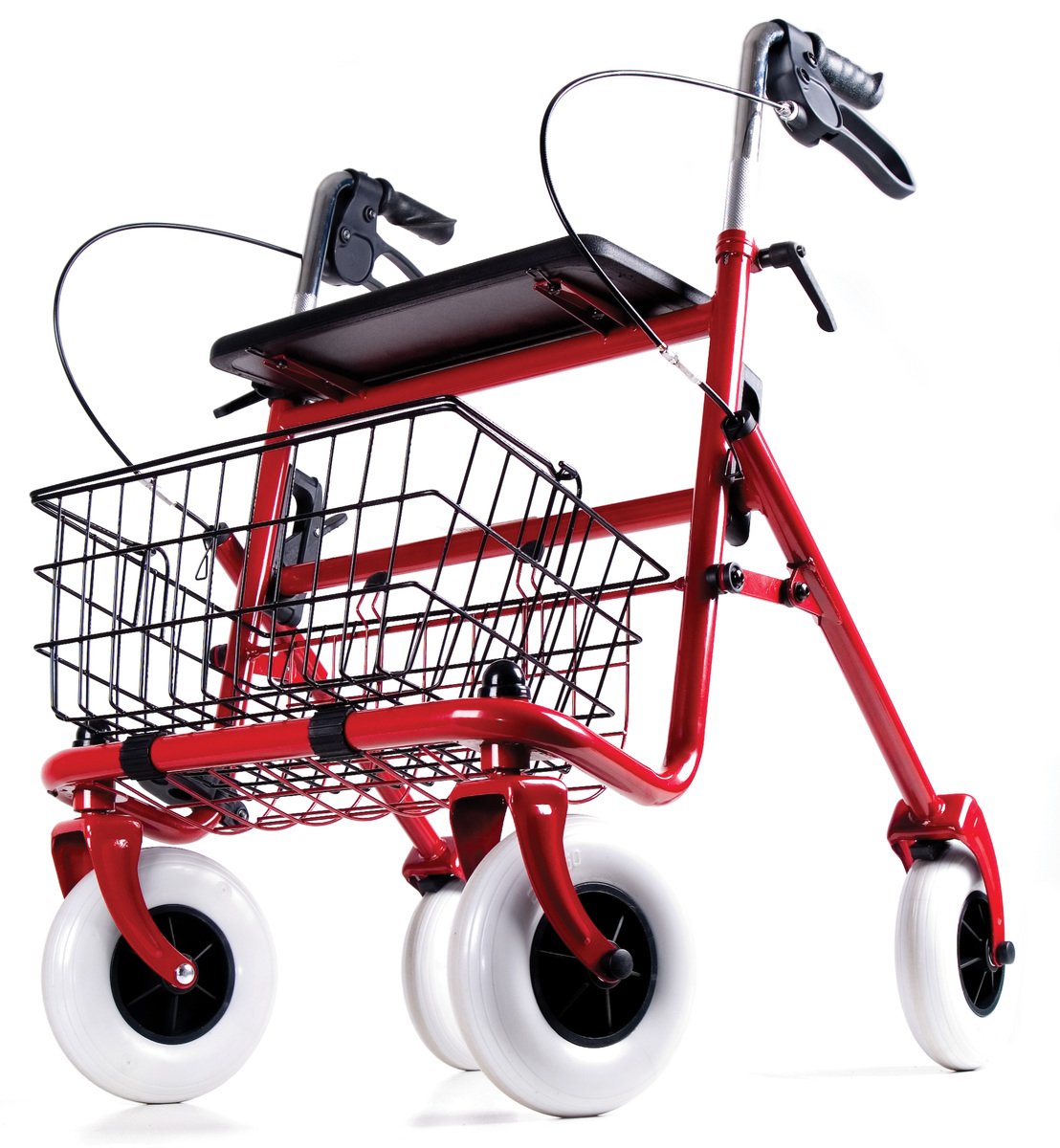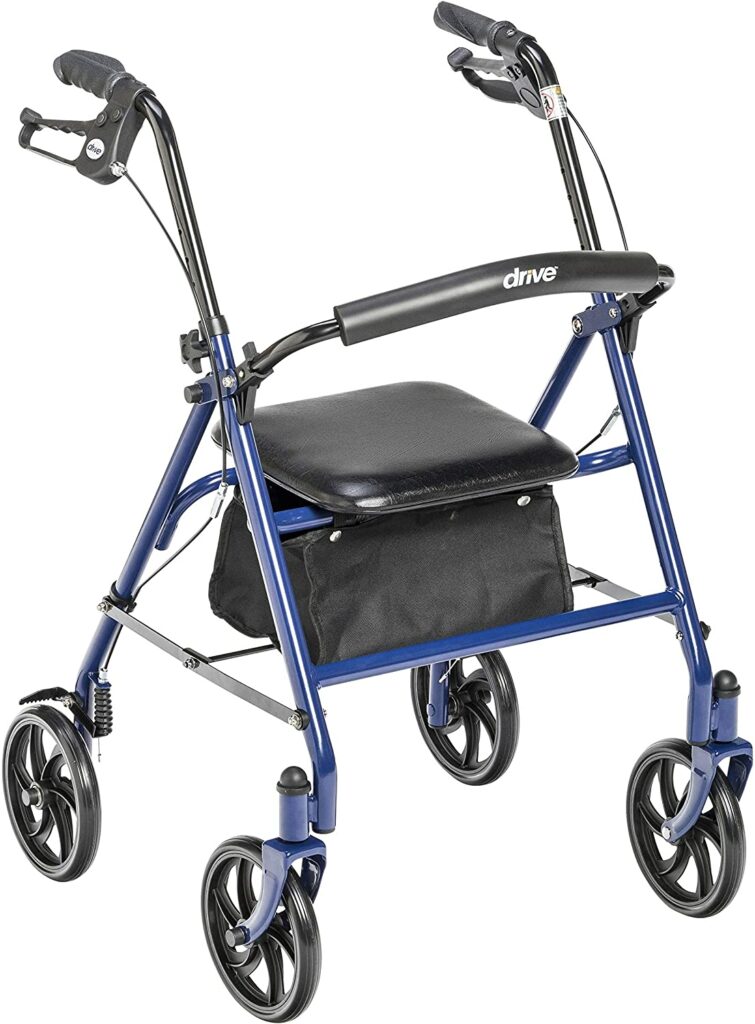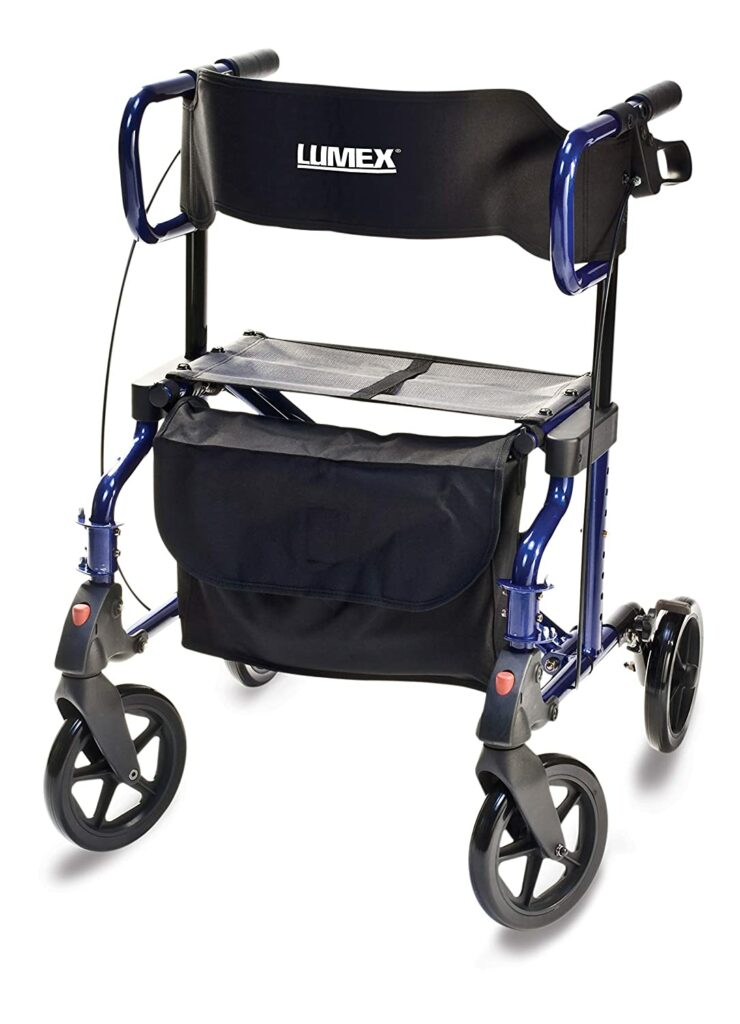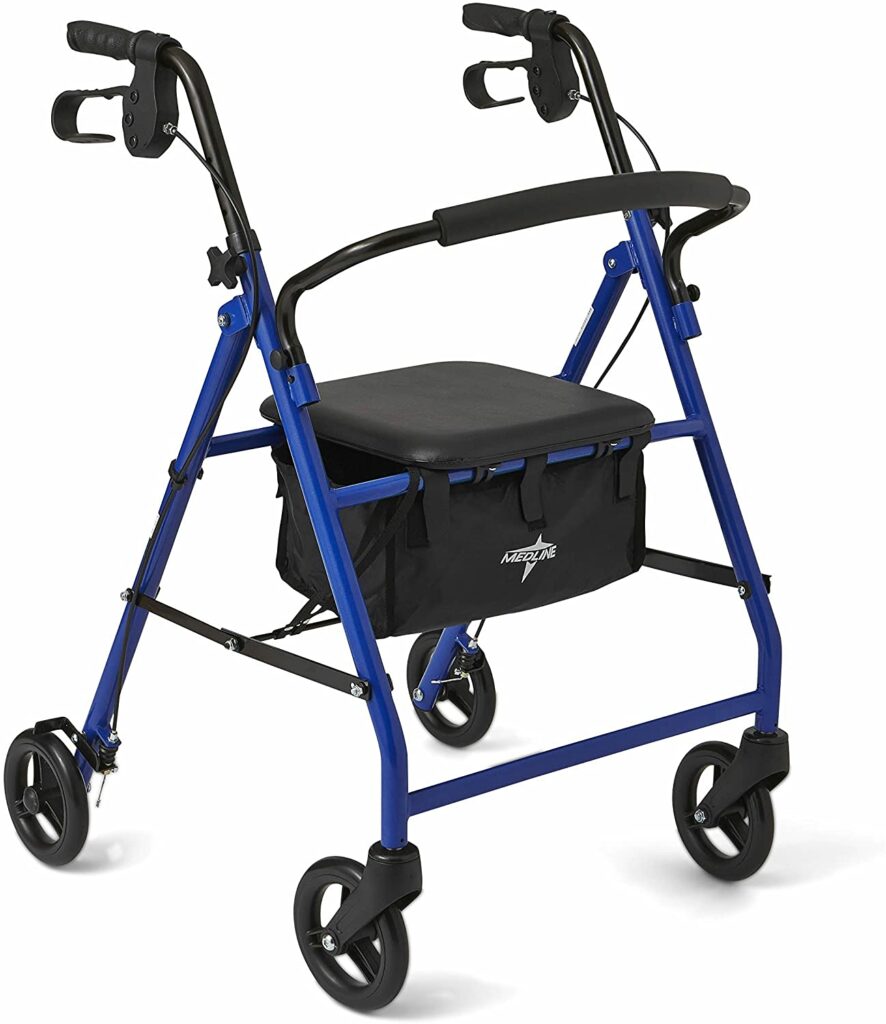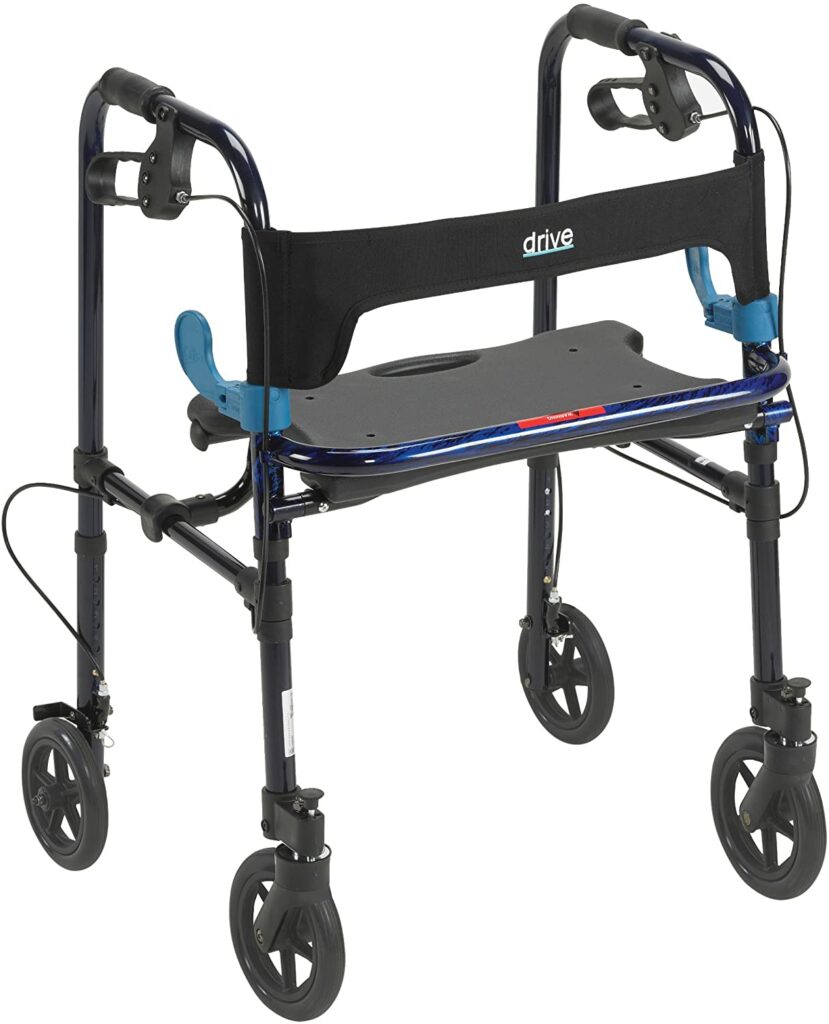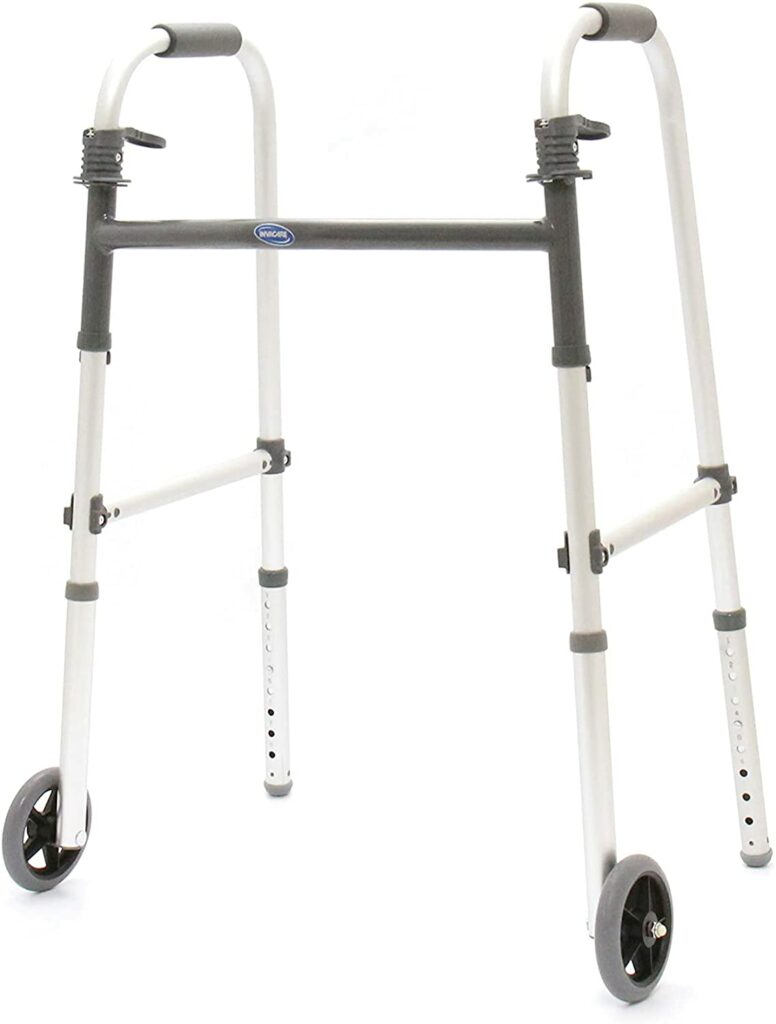- How to Find the Best Leg Massagers of 2022 - October 26, 2021
- Best Foot Massagers: Complete Guide - October 7, 2021
- The Best Massage Pillow Guide - October 5, 2021
A number of studies have established that walking may help improve mood, mental health, and memory in seniors. That’s why it’s vitally important to get the best walker if you’re an older adult.
The best walkers improve mobility and freedom. They make a great deal of difference in the life of seniors, including allowing them to get out and about and take part in exciting activities as opposed to being stuck indoors in a chair. When used properly, a walker can also lower your risk of falls.
In addition, more and more seniors are opting to use walkers to stay safe and active. In fact, one study revealed that from 2004 and 2012, the use of mobility aids among Americans shot up by 50 percent. In all, about 12 percent of older American adults use walkers.
Walkers are available in a wide range of styles and sizes. But it’s critical to pick the right model for your specific needs. So, there’s no one-size-fits-all when it comes to walkers. It’s best to consult a physical or occupational therapist for advice on what type of walker would best suit you.
Do I Need a Walker?
Walkers tend to be associated with disabled or elderly people. In fact, there are certain situations where a walker could come in handy for you, even if you’re neither disabled nor elderly.
- Poor balance: Several things can cause you to lose your balance. These may include multiple sclerosis, low blood pressure, inner ear imbalance, or stroke. The comfort of relying on a walker means increased mobility, which can therefore boost your physical fitness.
- Reduced weight-bearing capacity: A walker will immensely benefit anyone who’s unable to stand consistently for any given time. A number of reasons can be behind one’s inability to stand on their own, including arthritis, hip precautions, learning to walk using prosthesis, limited mobility after surgery, a healing wound, and pain due to poor circulation.
- Easily exhausted: The natural aging process can cause fatigue, as can respiratory disease, chronic pain, or arthritis. In all of these cases, a walker can help an individual get the support they need to take deeper, slower breaths.
So many individuals in the situations mentioned above report feeling isolated when they can’t get out and about like others. Using the best walker will allow these people to actively take part in family and social activities, not to mention fully enjoy their day-to-day life.
What’s a Walker?
This is a 4-legged metal frame that provides you with support as you walk. Walkers are perfect for people who could use some extra help even if they can still walk and definitely don’t require a wheelchair. A walker allows you to lean on it for balance and relaxation.
Walkers are typically made from aluminum since it’s a sturdy material but also fairly light. It’s able to support a considerable amount of weight yet it’s also easy to walk around in. Walkers also feature foam or rubber grips to make it easy to walk in them.
Types of Walkers
All walkers do basically the same thing, but some are customized for individual needs. It’s crucial to understand these differences so you can choose the best walker for you. Here are the most common kinds of walkers as well as their features.
Standard Walkers
These are the most basic walkers. They are the strongest and most dependable versions of walkers. Standard walkers have no wheels and require lifting to move. They often don’t come with a seat or other features. This means you’ll need your upper-body strength to use the walker.
Standard walkers tend to be lighter than rollators and rolling walkers. They are available at many leading stores, including Amazon, Walmart, Target and so on, and their starting price is about $25.
Rolling Walkers
These are probably some of the most common walkers. The rolling walker features two front wheels in addition to two rear wheels. The standard walker is physically lifted by every step of the user, while rolling walkers may help you move quicker without raising each step.
Since they’re on wheels, they may not be as stable as standard walkers. Nevertheless, rolling walkers will typically boast brakes and other features to steady the walker so it can support you properly.
Rollators
The main difference between a rollator and a rolling walker is that the former is four-wheeled. You don’t have to raise the rollator and you can move pretty fast in it than when using a rolling or standard walker.
You’ll probably have a storage pouch or basket to help you carry items. Rollators always feature handbrakes to make sure you stay safe and can easily stand still.
Handle Grip Options
The majority of walkers have plastic grips. Although these grips work well for some time, they can become uncomfortable to use. Foam grips are a much better choice if you regularly use your walker.
You can also buy extra cushioned grip covers for added comfort. Grip covers are available in a variety of materials and styles, including:
- Washable fabric
- Antimicrobial
- Memory foam
- Microfleece
- Sherpa fleece
Other Vital Considerations When Choosing a Walker
Here are other key features you should consider before choosing the best walker for you.
Stability
Need a walker that provides balance, or one with flimsy support but higher mobility? Here, your preferences have a huge impact on which walker to choose.
Seat Height
Practically all four-wheeled rollators come with built-in padded seats. So, when choosing a rollator walker, go for one with an adjustable seat or one that’s good for your height.
Capacity
Many walkers come with a specific weight limit. If you’re a much heavier individual, your best bet might be the stability offered by a standard walker. Most walkers are designed for people who weigh a maximum of 250 to 350 pounds, but some models are designed for individuals who weigh as much as 500 pounds. Make sure to pick a model that best suits your weight.
Adjustability
You should get a walker with flexible handles. We all have different heights, so you need bespoke support with adjustable handles that maintain your natural height. These handles have tiny holes on the sides that allow you to move the handles to whatever height that fits you.
Make sure that the 3-wheeled and 4-wheeled walkers come with brakes. Since these walkers roll easily, they may get out of control if there are no reliable brakes on the handles.
Foldability
Many walkers easily fold for transport or storage, but some models are easier to transport or store than others. For example, some walkers feature baskets that need to be taken out before folding.
If you need to get your walker into and out of your car or your home doesn’t have enough storage space, you’ll probably want something that folds down with ease to a convenient size.
Brake Type
Most rollator walkers feature loop brakes in their handles that are activated once you twist the levers. If you’re suffering from arthritis or have hand dexterity challenges, you can find these brakes too hard to operate.
Alternatively, some rollator models feature push-down brakes that you can activate with your weight. Front-wheeled and standard walkers don’t come with brakes.
Width
If you’ll be using your walker indoors, it must fit through the doorways. Some restroom doors are narrower than usual, so take a look at yours. Most walkers have a base width of 22-27 inches, but some walkers are even narrower.
Another important width is between the handles. Your hips should comfortably fit inside the walker. And if the walker comes with a seat, you need around an inch of space on both sides when sitting down.
Accessories
Some walkers feature things such as a bag or basket, a tray, a seat, or another feature. These accessories can make a walker more useful and easier to use. For instance:
- Some walkers are foldable, making them easy to transport and store.
- Seats are helpful for individuals lacking endurance who must take breathers while walking.
- Trays can help to carry food, beverages, and other things to a table.
- Some wheeled walkers have handbrakes.
- A pouch fastened on the side can help carry books and magazines.
- Baskets are helpful for individuals who use a walker while shopping.
For the most part, accessory options are only available in 3-wheeled and 4-wheeled walkers. Two-wheeled and standard walkers have a more basic design.
Whatever walker you select, be sure to maintain it and don’t overload it. Loose or worn-out rubber grips or caps and excessively tight or loose brakes can up the risk of falls while walking in a walker.
For advice on how to keep your walker in tip-top condition, consult your physical therapist or doctor.
Cost
In general, a walker costs around $40 to $150, depending on which type you buy. The least expensive ones are standard walkers, while the most expensive are rollators.
Try Out the Walker
Before you start using the walker by yourself for neighborhood walks or errands, take your time to practice. The handlebars should be at a convenient height, the wheels should fit securely, the basket or seat should be accessible, and the frame should keep you on your feet if you start to fall.
Once you’ve mastered how to use your walker, you should be raring to go and get your freedom of movement back.
Our Top Picks
Our walker selections come highly rated by customers for their usefulness, quality, and safety. They can quickly help you begin your journey towards recovery and stability.
Best 4-Wheel Walker: Drive Medical 10257BL-1 Four-Wheel Rollator Walker
Walkers made by Drive Medical are highly rated by customers. They range from cheaper models with a few functionalities to top-of-the-range models with all of the added features.
The Drive Medical 10257BL-1 Four-Wheel Rollator provides the highest comfort while still remaining highly durable and reliable. It features fold-up detachable back support and perfectly suits outdoor and indoor use.
- Pros: Comfortable, affordable, and features a pouch to keep possessions.
- Cons: Can be a bit heavier.
Most Versatile Walker: Lumex HybridLX Walker
Both a dual transport chair and a four-wheeled walker, the Lumex HybridLX Walker is an excellent rollator for those who want a chair and a walker.
- Pros: Features leg rests. Users can walk as much as they can and then sit back and have another person push them.
- Cons: Can work well on smoother surfaces.
Best Walker for Traveling Long Distances: Medline Steel Foldable Rollator with 6-Inch Wheels
The Medline Steel Foldable Rollator with 6-Inch Wheels is a four-wheeled foldable walker that boasts comfort handles, large wheels, a basket below the seat, Microban antimicrobial protection, and a thick backrest.
- Pros: Excellent for those who require a little bit of support and those who travel long distances.
- Cons: May be difficult to assemble after buying.
Best Seated Walker: Drive Medical Deluxe Rollator Walker
The Drive Medical Deluxe Rollator Walker comes with a folding seat, four wheels, and handbrakes. In addition, you can set the front wheels in a fixed or swivel motion.
- Pros: Comes with a seat. It’s simpler to push than a folding front-wheeled walker.
- Cons: Has less stability. Heavier than a fixed-wheel folding walker.
Best Two-wheel Walker: Invacare – 1128516 I-Class Walker
This walker from Invacare is an easy-to-lift, lightweight, front-wheeled mobility aid that features several height adjustments. Plus, it comes with a 300-pound weight capacity and is also durable.
- Pros: Durable, inexpensive, folds for easy transportation, highly adjustable, provides support, comes with a tough plastic glide at the back for improved gliding.
- Cons: Has no seat and is more difficult to use in community areas compared to four-wheeled walkers.
FAQs on How to Find the Best Walkers
Answer: The top-rated walkers to buy today include:
• NOVA Vibe 6 4236PL Rollator Walker
• Medline Premium Empower Walker
• Drive Medical RTL 10266 Nitro Euro-Style Rollator Walker
• Drive Medical R726RD Rollator Walker
• Hugo Mobility Explore Rollator Walker
• Lumex Walkabout RJ4300P Lite Rollator
• NOVA Traveler Three-Wheel Rollator Walker
• Hugo Elite 700-959E Rollator Walker
• American Bantex RJ4300 4-Wheel Rolling Walker
• Medline MDS86800XWS Heavy-Duty Rollator Walker
Answer: The best walkers for older adults today include:
• NOVA Vibe 6 4236PL Rollator Walker
• Hugo Mobility Explore Rollator Walker
• NOVA Traveler 4900BL 3-Wheel Rollator Walker
• Lumex Walkabout RJ4300P Lite Rollator
• Vive Folding Walker
Answer: When buying a walker, it’s vital to buy one with features that’ll fit your needs. Important features to keep an eye on include adjustability, stability, and weight limit.
Answer: Canes are typically ideal for issues that crop up on one part of the body, for example, if you suffer sciatica in your leg. On the other hand, walkers are ideal for pain that arises on both sides of your body, for example, if both your legs are weak.
Last Word on How to Find the Best Walkers
Keeping your mobility goes a long way to helping you remain independent and the best walker can really help you achieve that objective. By using the information we’ve provided above and checking out our top picks, you’ll be more than ready to choose the right walker for your needs.
Once you’re ready to buy one, be sure to consult your physical therapist or doctor. They’ll help you find the right fit and ensure that the walker you pick has all the features that you need.
Continue reading related walker guides and reviews

